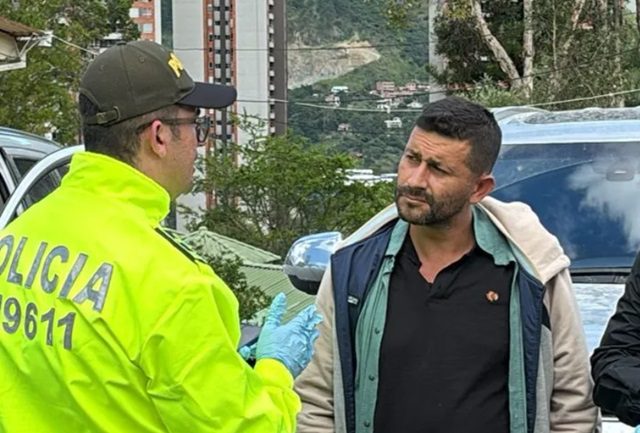BTN News: In a significant military operation in northwest Colombia, seven members of the Estado Mayor Central (EMC), a prominent FARC dissident group, were apprehended in Antioquia on Tuesday. The individuals were traveling in official vehicles, and the operation took place unexpectedly, leading to their capture. The Colombian prosecutor’s office confirmed the detentions, noting that the suspects were caught in the act while traveling in vehicles belonging to the National Protection Unit (UNP). This event marks a critical moment in the ongoing efforts to curb the activities of dissident groups and enforce the rule of law.
Military Interception and Arrests
The operation commenced when the Colombian Army intercepted a convoy of seven UNP vehicles traveling between the municipalities of Santo Domingo and Barbosa. Among those captured was Alexander Díaz Mendoza, known as ‘Calarcá,’ a high-ranking commander of the EMC’s Magdalena Medio Bloc and a peace negotiator with the government. Despite his valid safe-conduct pass, several other guerrilla leaders with active arrest warrants were also present in the convoy.
Mixed Reactions from Officials
Antioquia’s governor, Andrés Julián Rendón, highlighted the irony and frustration of the situation, pointing out the contrast between guerrilla leaders traveling freely under official protection while local officials, such as the mayors of Toledo and San Rafael, remain without adequate security despite facing threats. Rendón expressed his dismay, stating, “It’s very sad that I have two threatened mayors… and these criminals are moving around the country with UNP resources, armed and carrying cash and gold.”
Defense Minister’s Statement
Defense Minister Iván Velásquez confirmed the arrest of six additional EMC members traveling with ‘Calarcá’. Among them was Édgar de Jesús Orrego Arango, alias ‘Firu’ or ‘Leo,’ who had an outstanding arrest warrant for various crimes. Velásquez detailed the apprehension of five other individuals, including ‘Érika,’ who possessed ammunition and other materials, and María Alejandra Ojeda, found carrying an unlicensed pistol. Another detainee, ‘Ramiro,’ despite having his arrest warrant suspended, admitted to carrying an illegal weapon, leading to his immediate capture.
Seizure of Arms and Money
The operation also resulted in the seizure of two revolvers, a magazine, ammunition, and approximately 100 million pesos (around $25,000). These findings underscore the level of resources and armament the dissident group had at its disposal.
Government’s Negotiation Challenges
Camilo González Posso, the government’s chief negotiator with the EMC, commented on the arrest of ‘Firu,’ acknowledging the ongoing process to suspend his arrest warrant. He described the arrest as occurring under “irregular circumstances” and expressed hope for a legal resolution that would allow peace negotiations to continue smoothly.
Despite these incidents, González Posso emphasized the government’s commitment to resolving the situation and continuing planned activities. The recent termination of the bilateral ceasefire with the EMC due to repeated attacks on civilians and police in southwestern Colombia further complicates the peace talks. However, the ceasefire remains in place with three other EMC factions, including the Magdalena Medio Bloc.
Background on Peace Talks and Conflicts
The EMC has been engaged in peace talks with the Colombian government since last year. However, these dialogues have faced numerous obstacles due to the group’s ongoing violent actions in the departments of Cauca, Nariño, and Valle del Cauca. In response to these challenges, the government suspended contact with the faction led by ‘Iván Mordisco’ in April, effectively ending the ceasefire that had been in place since the beginning of the year. Nevertheless, negotiations continue with the other three EMC groups.
Conclusion
The recent arrests of seven EMC members, including significant figures within the dissident group, highlight the ongoing complexities and challenges in Colombia’s efforts to achieve peace and security. As the government navigates these turbulent waters, the commitment to upholding the law and protecting its citizens remains a top priority, even as it seeks to engage in constructive dialogue with armed groups.


